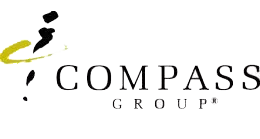Since 2012, Compass Group USA has used an innovative and effective claims assessment program to raise awareness and improve loss prevention results across their portfolio of business. With thousands of active payroll sites spread across the country, Compass leveraged a centralized claims-based program to drive improvement.
Despite the program’s steady record of success in raising safety awareness and reducing claims frequency, Risk Manager Brian Van Allsburg and members of the Compass Group USA leadership team understood that continuous evolution of risk and safety programs is necessary to further improve a workplace safety culture. Change came with the adoption of a proactive, behavioral approach— one designed to focus on leading indicators.
“When you operate in a post-loss, claims management model, there is only so much that can be done to manage behavior and costs,” says Van Allsburg.
So, while the Compass Group Risk Management team continued to make improvements to the claims assessment program, they also worked with the Safety team to design and implement a sustainable, behavior-based risk and safety management model.
PARTNERSHIP WITH ORIGAMI RISK
In 2015, the Compass Group Risk Management team entered the marketplace in search of a RMIS platform better suited to manage their enterprise risk needs. The flexibility of the Origami Risk platform, its focus on reporting technology, and the accessibility and ease of use of administrative settings that allow the team to make changes themselves were all key factors in their selection of Origami Risk.
Today, Compass Group uses the platform as a primary communication vehicle across the business for risk- and safety-related performance. Compass Group continues to leverage Origami Risk to run its claims penalty assessment program, analytics, and OSHA logs. More importantly, with Origami Risk, Compass Group has found an adaptable and intuitive solution for collecting and reporting on safety behaviors.
A PRE-LOSS APPROACH AND ITS CHALLENGES
With the underlying goal of adding to the number of injury-free locations, year-after-year, Compass Group’s behavior-based approach uses internal audits to increase safety awareness among unit managers and associates. To obtain an objective measure of each unit’s performance, independent third-party audits that use an identical question set are conducted periodically. Developing a library of audits and finding an effective means of collecting responses—while also simplifying manager workloads—were the first hurdles the group had to clear. Given the broad range of services provided by Compass Group companies, different question sets were created to account for such factors as:
- The various types of facilities in which Compass Group operates
- The various industries Compass Group services
- The technical work performed by the operating company
- Unique cultures and brands
AUDITING SOLUTIONS AND SUCCESSES
Origami Risk’s adaptable platform, combined with a collaborative approach to problem-solving, allows Compass Group to tailor the system to meet its nuanced requirements, including:
- Online auditing functions. With Compass Group companies operating in a broad range of facilities, unit managers can perform audits using an online portal or (for facilities with no internet connection) the Origami Mobile Form app.
- Ease of use. An intuitive format makes it easy for unit managers to respond to audit questions. Tool-tips for each help answer any questions that may arise when performing an audit.
- Custom audit libraries. With a family of companies, Compass Group wanted to develop targeted content tailored to the business needs.
- Company-specific branding. To present each Compass Group company with a product that appears customized to their business, logos for each company are embedded in the mobile audit forms
In April 2017, internal audit collection using the platform was rolled out as part of a pilot program across four Compass Group sectors. During the month, more than 1,200 audits were entered via an online portal and mobile app.
Initial feedback from the field was positive. Users responded enthusiastically to having multiple options—online and mobile app—for providing responses. Unit managers also appreciated the fact that they could instantly view their internal audit scores. (Upon completion and submission of an audit, a PDF file is emailed to them with their audit results and actionable measures.)
With the success of the pilot program, Compass Group launched its behavioral safety audits company-wide. Thousands of audits have been completed to date, enabling far greater insight into the safety behaviors at each location and improving communication and transparency across the business.
CONTINUAL IMPROVEMENT
After examining the initial audit results, Compass Group worked with Origami Risk’s development team to enhance the Risk Assessment Scoring model for audits. With input and testing by Compass Group users, the audit solution now allows for the weighting of individual questions based on their criticality. This enables audits to drive safe workplace behavior more effectively by targeting specific safety issues encountered at one or more locations.
Additional development has occurred with the creation of “mini” or sub-category audits. Compass Group realizes an effective safety culture requires active participation by all associates, and a full safety audit may not necessarily be realistic given time constraints in the business. The purpose, says Van Allsburg, is to develop a culture of safety that is not simply enforced from the top down or that is merely the responsibility of unit managers.
“To really continue to develop a safety culture that everyone buys into, we want any associate to be able to take their phone and answer five or six questions, instead of 50,” says Van Allsburg. “That way anybody, at any time, can do an audit.”
By fostering a greater sense of ownership among Compass Group associates, the team hopes to improve the focus on safety.
“Safety is something we want our unit managers and associates to always be thinking about, regardless of whether they’re working at a location that has a history of generating claims or not. We’ve provided them with tools that will give them greater ownership of the procedures that drive safe workplace behavior.”
